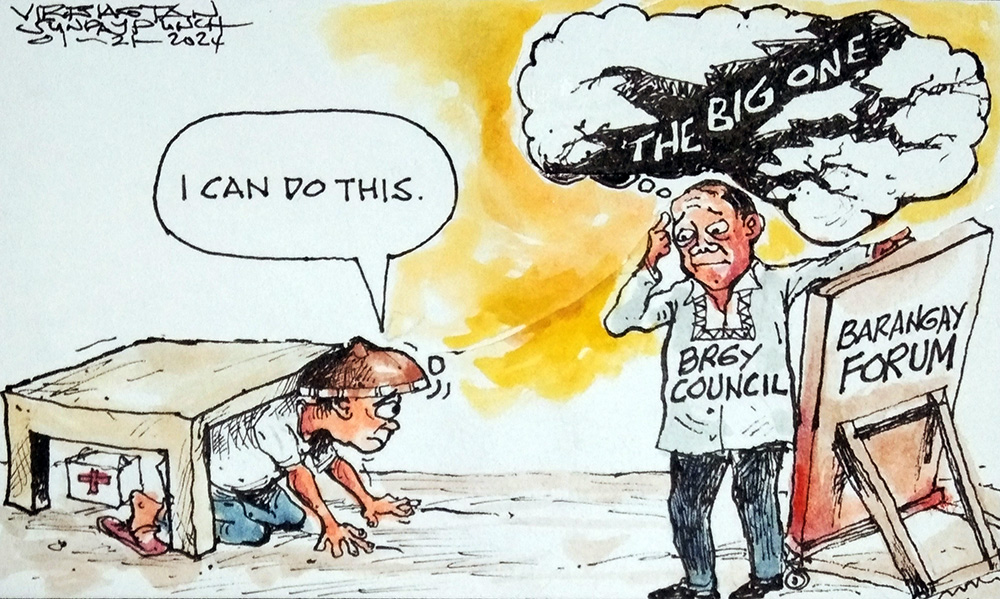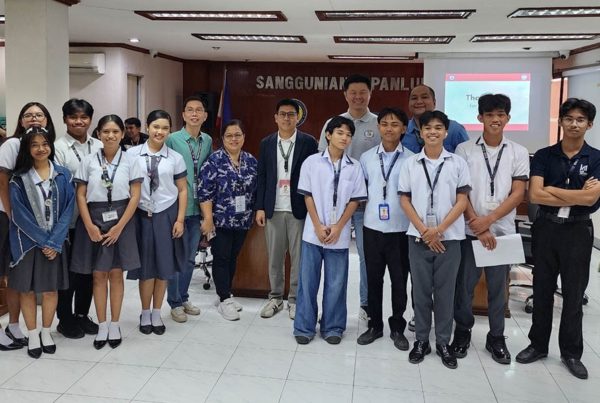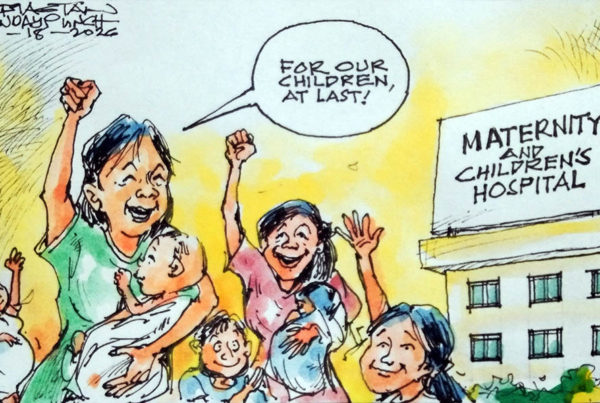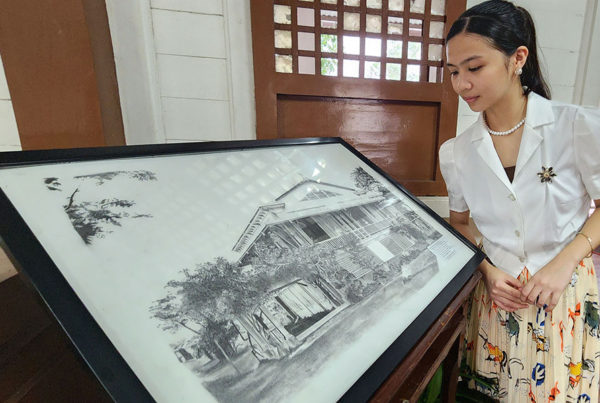
Mental preparation vs earthquake, tsunami
DAGUPEÑOS who felt the earth move in 1990 and are still alive today do not need be reminded how to survive a 7.8 magnitude earthquake.
But they should be asked to recall how unprepared they were when the deadly earthquake shook them out of their wits, and looking back, what they could have done to better protect themselves and their homes.
So beyond identifying and preparing evacuation centers and support for these to prepare for an earthquake is the lesser problem. The bigger problem is preparing residents mentally.
The decision, therefore, to leave it to each barangay to craft and agree on their respective measures for evacuation of families is a positive move. This means barangay residents need not wait for the city hall to tell them what to do, where to go.
In this regard, barangay councils can do their constituents a service if they consider preparing their residents with a series of barangay forum engaging them to talk about what it was like when the earthquake toppled homes and buildings in 1990. To talk about how and what it was like to be mentally unprepared.
But to merely expect the barangay council to disseminate information where to go, what to bring is the worst way to prepare residents for an earthquake. There must be the individual experiences that must be shared to create higher awareness about consequences.
That can take care of plans how to survive an earthquake.
Dagupeños have had no experience with tsunami at any time in the past. Establishing an evacuation center is just about the only basic plan that a barangay can do. Perhaps the closest experience of the city relevant to a tsunami is the experience of seeing their homes and streets flooded waist deep.
This is where the city government must step in and provide the inputs, citing reported experiences in countries hit by tsunami. The information must start with listing vulnerabilities of communities and homes, of families and the hazards and risks to every individual during and after. There must be loads of information on problems suffered by families during and after the tsunami recedes.
In brief, preparing resources to deal with earthquakes and tsunamis is the easiest part. Preparing minds of residents how to deal with these two natural disasters is another.
The buzz word for survival is the need for mental preparation.









